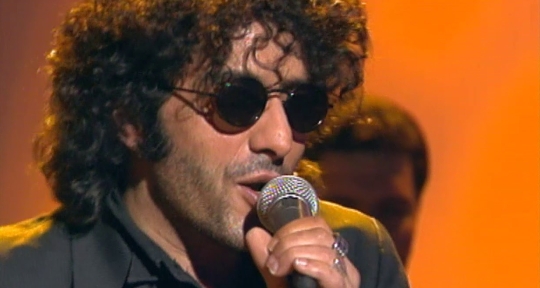|
Influenced by the music of his native Algeria and his adopted homeland of France, the late Rachid Taha always put the wry in rai.
While it feels like this, his last album (he died of a heart attack last year), should somehow be a weighty epitaph for his unique career, the album fits the situation only in that it maintains his signature cultural mix and continues the themes of his career as a smart aleck that rocked out as he thumbed his nose at the assholes that made life tough for immigrants.
Born in Oran, Taha emigrated to Lyons, where he worked in a factory and eventually started gigging as a deejay at a local club, playing a mix of Western rock and Middle Eastern sounds that were coming up, such as rai and chaabi. That bringing together and celebrating various kinds of music continued right up through his last album, which touches on an array of styles.
Taha formed the band Carte de Sejour (named for a French ID card for immigrants) that had an unlikely hit with "Douce France" a tongue-in-cheek version of a French patriotic song. Taha then went on to a solo career, creating an amalgam of punk and Arabic sounds.
The 37-minute album starts off with "Ansit," a mid-tempo tune that features a sinuous string section, but despite the Middle Eastern instrumentation still has the feel of a rock anthem in part due to Taha's punk-raspy voice.
On Je Suis African, he weaves together electric guitars, a Middle Eastern string section, as well as percussion from both worlds for an upbeat collection of songs. In the title cut, Taha declares himself African, adding a touch of sparkling soukous guitar and shouting out a wide-ranging list of African and African-diaspora icons, including Jimi Hendrix, Bob Marley and Nelson Mandela.
Taha strips down the sound to a simple driving rock anthem with "Andy Waloo," juxtaposing that name with Andy Warhol. On "Wahdi," his rough voice is contrasted by the sweet, delicate vocals of Algerian-Swiss singer Fleche Love, all played against mariachi horns and Gnawa rhythms. On "Like a Dervish," Taha sings that this is "my first song in English/my English is not so rich," adding a playful B-52s-like female chorus to the loping rhythms and big, powerfully rolling bass. "Striptease" has a late-night blue feel that swirls in a bit of violin and strings behind his half-spoken vocals. "Insomnia" seems to pay tribute to the Spaghetti Western music of Enno Morricone with its whistling chorus, and surf guitars and trumpet solos.
Taha ends, somewhat ominously, with "Happy End," a somewhat spare song that moves along with a sort of doo-wop electric guitar and flourishes of his string section that slowly builds as his dissolute voice sings-speaks including an imploring "I love you" in English and "Te quiero" in Spanish.
It's hard not to feel bittersweet about this final missive from the mischievous Taha. He ends his career, though, with the same spirit he lived it – an unlikely agit-prop activist who always delivered his barbs with a laugh and stomping beats, always issuing calls to join his political party music.- Marty Lipp
|
